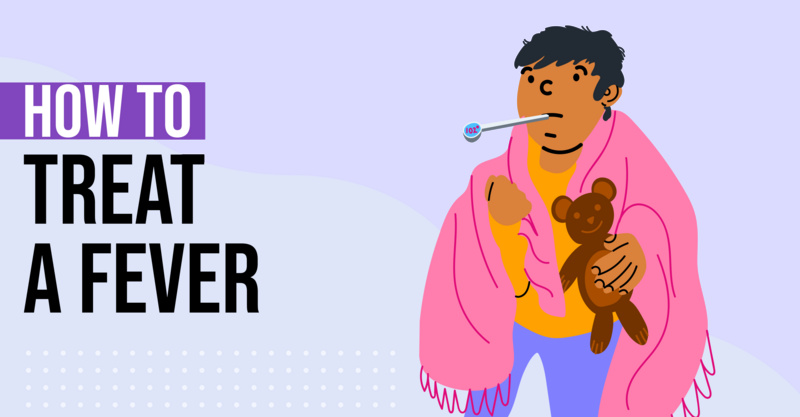Key Points
- Nasal polyps are growths in the nose that can cause symptoms like congestion, loss of smell and taste, snoring, and forehead pressure.
- These polyps can be caused by various conditions including sinus infections, asthma, cystic fibrosis, and hay fever.
- Preventative measures include managing existing nasal issues, increasing moisture in the nasal passages, and avoiding irritants.
- Treatment options for nasal polyps range from steroid use to surgery.
- The article also provides a guide on what questions a doctor may ask a patient about their nasal polyps.
Possible Symptoms for Nasal Polyps
1. Congestion
We all get congested and have a runny nose when we get a cold or the flu. However, if you have nasal polyps, it’s probable that you experience these symptoms, as well as sneezing and feeling as if you have blocked nasal passages, for several weeks or longer than normal.[1] Having nasal polyps can be very uncomfortable for this reason.
2. Loss of Smell
It’s possible to lose your sense of smell temporarily as a result of nasal polyps.[1] Because these small lesions block the nasal passageways, they can impair or cut off your sense of smell and even cause a loss of smell.[2]
3. Loss of Taste
The nose and the mouth are highly connected with one another, and when one experiences issues, the other is likely to as well. It is believed that smell contributes to about 80 percent of taste, so it’s no surprise that a blocked nose causes your sense of taste to suffer.[3]
4. Snoring
Nasal polyps can sometimes cause snoring. Blocked nasal passageways make it harder to breathe through your nose while sleeping, so you might begin to breathe through your mouth more often, causing snoring at night. Even if you don’t breathe through your mouth, your blocked nose could still lead to noisy breathing. Nasal polyps can even cause sleep apnea in some cases.[2]
5. Pressure in the Forehead
When you are congested, you can experience pressure in the forehead - often called a sinus headache, making your head feel packed.[2] An overabundance of mucus presses on your sinuses, creating another symptom of nasal polyps that feels similar to the common cold or flu. However, if you have experienced this for a long time, it probably isn’t a cold that will just disappear on its own.
Top 4 Causes of Nasal Polyps
1. Sinus Infections
Chronic or continuous sinus infections can cause nasal polyps.[4] In fact, this is one of the most common causes of the condition. When you have a sinus inflammation that lasts more than 12 weeks, you will likely start to experience polyps in your nasal passageways as a result.
2. Asthma
Asthma is another long-term condition that can cause nasal polyps. These two issues have been linked more often in recent studies. Because the airways can become inflamed, similar to the sinuses during a sinus infection, polyps can form over time, causing even more discomfort and breathing issues.[5]
3. Cystic Fibrosis
Cystic fibrosis is an inherited disorder that causes lung and digestive damage. It can be life-threatening in some cases.[6] The cells in the body that create mucus are some of those affected by cystic fibrosis; when mucus becomes thicker, people are prone to developing polyps.
4. Hay Fever
Hay fever, or allergic rhinitis, is a type of allergy triggered by pollen, dust, or other items in the air. A person can experience excess mucus, sneezing, and watery eyes, which, over time, can lead to the buildup of polyps in the nose.[7]
3 Ways to Prevent Nasal Polyps
1. Manage Nasal Problems
If you have allergies, asthma, or chronic sinus conditions, you might develop nasal polyps. However, you can minimize the likelihood of this issue by controlling your symptoms. Use medication or other preventative practices to avoid allergy or asthma attacks.
2. Increase Moisture
If you have any of these chronic conditions, using a humidifier, especially when you sleep, can minimize the issue by moistening the nasal passageways.[3] Moisturizing decreases the amount of inflammation you experience and makes it less likely for your nasal passageways to become blocked. You can also use a rinse or spray on your nose when you notice it becoming dry.
3. Avoid Irritants
Whatever you do, avoid things that are likely to irritate your nose, such as cigarette smoke, dust, and other substances. Having an air purifier in your room or home can minimize your interactions with irritants in the air.
Possible Nasal Polyps Treatment Options
1. Steroids
You can use nasal steroids to shrink polyps and minimize their effects.[1] However, nasal steroids often have to be used continuously or the size of the polyps will increase again, causing the same issues as before. Steroids are available in spray, pill, and liquid form. Pills and liquids can last longer and have more intense results, but sprays are easier to manage yourself.
2. Surgery
Endoscopic sinus surgery can treat large polyps that cause severe side effects and don’t respond to the use of steroids.[1] Surgery is usually quick and easy, and most patients return home that day. Your doctor inserts a tube into your nasal passageways in order to clear out the polyps. It is important to remember that polyps can return, even after surgery, especially if you do not manage the condition that caused them to occur in the first place.
Questions Your Doctor May Ask About Your Nasal Polyps
- How long have you had nasal polyps?
- Do they cause any serious side effects for you, such as difficulty sleeping, tasting, or smelling?
- Do you have any other sinus problems or conditions, such as asthma or allergies?
- Are you allergic to aspirin?
Nasal Polyps May Also Be Known as
- Nasal lesions
Frequently asked questions
What are the symptoms of nasal polyps?
Symptoms of nasal polyps include congestion, loss of smell and taste, snoring, and a feeling of pressure in the forehead.What causes nasal polyps?
Nasal polyps can be caused by several conditions including sinus infections, asthma, cystic fibrosis, and hay fever.How can I prevent nasal polyps?
Prevention strategies include managing any existing nasal issues, increasing the moisture in your nasal passages, and avoiding irritants that can trigger polyp growth.What are the treatment options for nasal polyps?
Treatment options can range from the use of steroids to surgery, depending on the severity and size of the polyps.What questions might a doctor ask about my nasal polyps?
A doctor may ask about your symptoms, your medical history, and any treatments you've tried in the past. They may also ask about your lifestyle and any potential irritants you're exposed to.Can nasal polyps lead to other health issues?
Yes, untreated nasal polyps can lead to complications like chronic sinus infections and sleep apnea.Are nasal polyps common?
Yes, nasal polyps are quite common and can occur in people of all ages, but they're more prevalent in adults over 40.Can nasal polyps be cured?
While nasal polyps can be effectively managed with treatment, they can recur even after successful treatment.
Solv has strict sourcing guidelines and relies on peer-reviewed studies, academic research institutions, and medical associations. We avoid using tertiary references.









